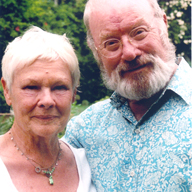

Dost thou not perceive that Rome
is but a wilderness of tigers?

| Cast | |
| Titus | Berkley Spivey |
| Tamora | Lelea‘e “Buffy” Kahalepuna-Wong |
| Lavinia | Maya Berengue |
| Aaron | Stuart Featheran |
| Demetrius | Kaipo Dudoit |
| Chiron | Alysia Kepa‘a |
| Lucius | Alaka‘i Cunningham |
| Marcus | Sanae Tokumura |
| Saturninus | Kyle Conner |
| Martius / Goth | Kekoa Shope |
| Quintus / Goth | Yasmin Ko Galvis |
| Bassianus / Clown | Phillip Ikaika Foster |
| Aemilius | Jeremy Keuma |
| Mutius / Nurse | Lala Kealaulapo‘iuonalani Faifili |
| Publius. | Daron Lamont Gaskin |
| Tribune / Young Lucius | Ember Isabelo |
What do you do when the world is ending?
Titus Andronicus is one of Shakespeare’s most violent plays —and most topical. It addresses the end of the world, and the collapse of civilization itself. With typically Elizabethan anachronisms, Shakespeare interrogates the very notion of “otherness,” of silence and language, chaos versus order, sophistication versus brutality, disrupting with paradoxical images and constant subversions, urging us to not to turn away from our own ensuing devastation. Elizabethans unambiguously looked to Roman civilization as a reflection of their own. Shakespeare examines the fall of Rome, and the possible fall of England (when an heirless virgin queen leaves the kingdom leaderless) by condensing several hundred years of Roman history.
A central theme in Titus is language and the power of stories and words—indeed, when Titus fights back against Saturninus, he uses messages. When he finally faces down to two of his antagonists, he almost talks them to death. Characters are silenced, gagged—after all, the ability to communicate is as vital as life itself.
With the character of Lavinia, Shakespeare accurately depicts what too often happens with sex assault victims. For example, when she finally reveals the names of her assaulters, she must hold an instrument in her mouth to guide her wrists—mirroring how sometimes speaking out against assault is doubly traumatic.
Titus is also unusual in that Shakespeare sometimes uses hexameter (and trimeter!); it is the work of a young playwright in love with language. We have tried to be as true as possible to the text and make choices that support the themes, rather than distract. (The sole popular choice that I have struck is Lavinia with the hand in her mouth... So for you uber traditionalists, yes, there are some line cuts and no one walks around with a hand in their mouth.)
The purpose of violence in most artworks is to warn people from making those mistakes. On the other hand, the use of the word “moor” is dangerous. (Personally, I’m ok with violence or sex in plays—but not with harmful stereotypes being reinforced.) All the times “moor” is said, it has been replaced with “man.”
As Shakespeare wrote, “When sorrows come, they come not single spies but in battalions...” This is a play about unrelenting tragedy—and the only rational response: resilience. As the Chinese say, eight times down, nine times up. In the depths of sadness—Titus laughs.
He laughs and this laughter frees him. Sometimes, it’s so bad—all we can do is laugh.
And stand up again.
—Taurie Kinoshita
| Like | Facebook.com/HawaiiShakes |
| Follow | Instagram.com/HawaiiShakes |
| Donate | Paypal.me/HawaiiShakes |
| Donate | Venmo.com/HawaiiShakes |
In his years teaching, creating, promoting and performing theater in Hawai‘i, Professor Knapp touched thousands of lives. While he tackled a wide variety of theatrical projects, it was Professor Knapp’s boundless joy for teaching and presenting Shakespeare that we hope to honor with this festival. It is our sincere wish that our affection and respect for our beloved teacher finds a voice in these productions. The Hawaii Shakespeare Festival is dedicated to Terence Knapp.
—R. Kevin Garcia Doyle, Tony Pisculli, Harry Wong III

Dame Judi Dench, Companion of Honour by the Queen’s personal gift and Britain’s Most Outstanding Actress (as voted by her peers) has consented to be the Patron of the Hawaii Shakespeare Festival at the invitation of Terence Knapp.